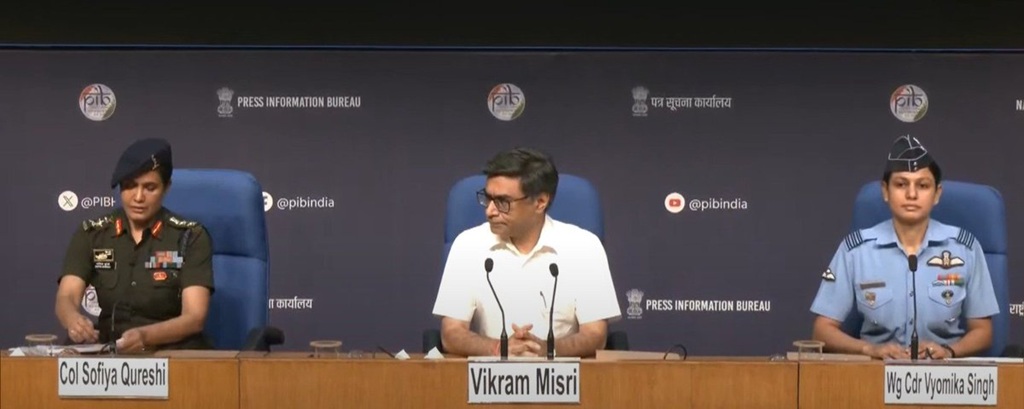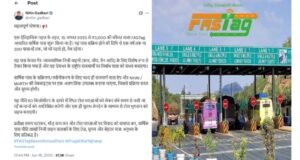Operation Sindoor: Colonel Sofia Qureshi, Wing Commander Vyomika Singh Explain India’s Decisive Strike in PoK and Pakistan

New Delhi: In a powerful response to the recent terror attack in Jammu and Kashmir’s Pahalgam, the Indian Army launched a swift and strategic military operation, striking nine terror camps in Pakistan-occupied Jammu and Kashmir (PoJK) on May 7. The retaliatory move, named Operation Sindoor, targeted key launchpads and training centres operated by terror outfits including Lashkar-e-Taiba, Jaish-e-Mohammed, and Hizbul Mujahideen.
In a joint press briefing on Wednesday, Foreign Secretary Vikram Misri, Wing Commander Vyomika Singh, and Colonel Sofia Qureshi detailed the objectives and outcomes of the operation, which was conducted between 1:03 AM and 1:30 AM.
“India exercised its right to self-defence and carried out a precise and responsible operation to dismantle the terror infrastructure thriving across the border,” Misri said. “This is a message to those who attack our people — justice will be delivered.”
Targeting the Terror Network
Colonel Sofia Qureshi confirmed that nine high-value terror installations were destroyed. Among them was the Lashkar training center at Sawai Nala in Muzaffarabad, which intelligence sources identified as the site where the perpetrators of the Sonamarg, Gulmarg, and Pahalgam attacks were trained.
“For over three decades, Pakistan has bred terrorists on its soil. These camps were used to plan and launch attacks into Indian territory,” Qureshi said. “The operation was essential not just as retaliation, but to prevent future bloodshed.”
Wing Commander Vyomika Singh echoed this sentiment, stating that the mission was meticulously planned to avoid civilian casualties while maximizing impact on the terror network.
A Measured and Necessary Action
Foreign Secretary Misri emphasized the operation’s strategic restraint. “This action was not about escalation. It was about dismantling terrorism at its roots. We have acted with precision, targeting only those responsible for terror activities,” he said.
He also criticized Pakistan for shirking responsibility and engaging in denial, even as credible intelligence pointed to further attacks being plotted from within its borders.
Remembering Pahalgam: The Catalyst
The April 22 Pahalgam attack, which claimed the lives of 25 Indian tourists and one Nepali citizen, was described by Misri as “the most heinous terror incident since 26/11.” He revealed that the attackers not only executed civilians in front of their families but also forced survivors to deliver a message to the Indian government, signaling a deliberate psychological assault.
“This was not just an attack on individuals, but an attempt to destabilize the peace and progress in Jammu and Kashmir,” Misri said. “With over 2.25 crore tourists visiting the region last year, Pakistan-backed terror groups are desperate to derail normalcy.”
Tensions Rise, Diplomacy Takes a Hit
In light of the Pahalgam massacre and subsequent evidence of cross-border involvement, the Indian government has initiated strong diplomatic measures against Pakistan. While specifics were not disclosed, sources suggest that bilateral engagement may be scaled down significantly.
“India will not tolerate bloodshed of its citizens,” Misri stated. “The international community must also recognize Pakistan’s role in nurturing terrorism and act accordingly.”








